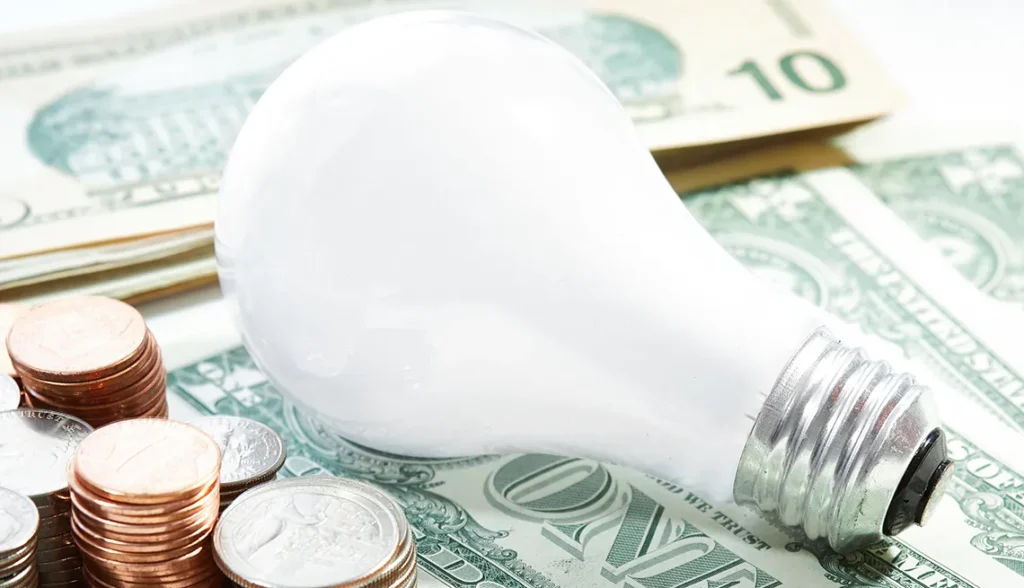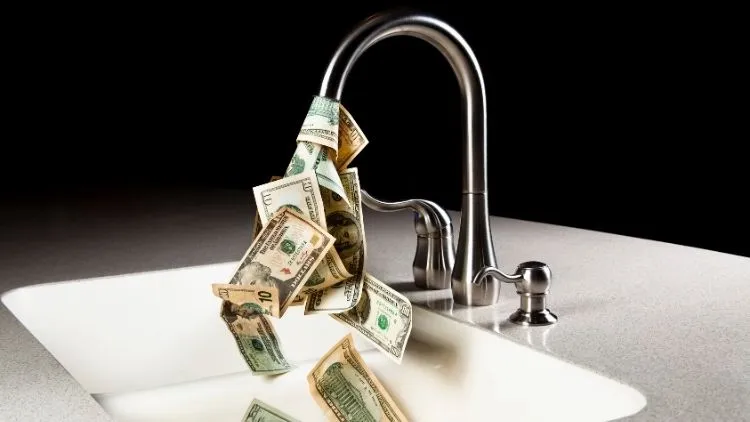Saving money on household expenses is the priority of many; therefore, smart tips to save on utilities can make a difference in one’s budget. If you are in search of ways to manage your bills, keep reading.

It’s beneficial to keep your water, gas, and electricity expenses within your financial circle. The tips on saving money on utilities; will help you do the most with your resources while ensuring you don’t waste a single penny unnecessarily.
You can reduce utility bills to a minimum just by getting accustomed to small changes, hence creating more financial liberty.
Benefits of Cutting Down Utility Bills
The reasons for cutting utility bills go well beyond saving money. Here is why it is worth focusing on reducing these expenses:
1. Immediate Financial Relief
The most explicit advantage of reduced utility costs is the immediate savings. Small adjustments, such as switching to energy-efficient appliances or minimizing water consumption, will result in noticeable savings in your monthly bills.
Over time, this will add up and free up more money for other needs or to save for future financial goals.
2. Contributes to Long-Term Savings
Long-term financial savings can come in the way of lower utility bills. The savings that the homeowner accrues over a year or more are much bigger than the increased bills each month.
These will help attain major financial milestones, whether it be debt repayment, building an emergency fund, or saving for a big purchase.
3. Environmental Impact
When you lessen the consumption of energy and water, you also reduce your bills while helping the environment in the process.
You help in keeping natural resources for the future by consuming less, which reduces your carbon footprint. Lesser utility usage contributes to a more sustainable lifestyle.
4. Improved Home Efficiency
When you focus on tips to save on utilities, you are bound to make your home more efficient.
Installing energy-efficient appliances, sealing drafts, or improving insulation will make your home a more comfortable place to stay, warm during winter and cool during summer, while you reduce your energy use.
5. Less Stress About Bills
Paying high utility bills can be financially stressful, especially when the heating and cooling costs skyrocket during months that are at either extreme.
In fact, with cost-cutting strategies, you’ll enjoy more predictable bills, as you’d be way better off budgeting and stemming the amount of stress you face over how to pay for utilities that seem way too over the top in cost.
Tips to Save on Utilities for Small Homes

You don’t have to overhaul your entire life to lessen your utility bills. Little changes consistently created can eventually add up and translate into huge savings over time. Here are seven practical ways to save on utilities:
1. Install Energy-Efficient Appliances
The surest method of effectively reducing utility bills is to switch over to energy-efficient appliances. For that, an ENERGY STAR rating on them needs to be looked for. This ensures they meet government efficiency standards.
These appliances are designed to consume less electricity and water, saving a lot on energy and financial bills throughout the product’s lifetime.
2. Use a Programmable Thermostat
Heating and cooling generally take the largest share of utility bills. Fixing a programmable thermostat will allow you to set concrete temperatures at particular times of the day.
For instance, it is possible to turn down the heat when you go to sleep or are away for work and auto-adjust when you are present at home. This alone has proven to reduce heating and cooling bills significantly.
3. Seal Windows and Doors
Drafty windows and doors can let cold air in during winter and hot air in during summer, putting excessive strain on your HVAC system.
Weather stripping or caulking seals gaps around windows and doors to prevent energy loss and insulate your home, thereby reducing the heating/cooling workload and energy use.
4. Switch to LED Bulbs
Traditional incandescent bulbs consume a lot of energy and need replacement more often. Replacing them with LEDs will visibly cut down your electricity consumption.
The major advantages of LED bulbs include that they use up to 75% less energy compared with traditional ones, and they can last longer, which also means you will save on energy bills and replacements.
5. Run Appliances Efficiently
Run your appliances only when necessary and use them efficiently. For example, run your dishwasher and washing machine only when you have full loads, and use cold water for washing clothes when appropriate.
These simple changes can result in significant savings in water and electricity.
6. Reduce Water Usage
You can easily spend less when it comes to water consumption. Put low-flow showerheads and faucets in place that reduce consumption without sacrificing comfort.
Be sure you also turn off the running water while brushing your teeth or washing dishes and address those leaks as soon as they become evident. Even small drips will add up to many gallons of wasted water over some time.
7. Unplug Electronics When Not in Use
Most electronics nowadays also consume electricity when they are turned off; this is often referred to as “phantom power.”
All you need to do is make it a habit to unplug those items when not in use, such as your TV, game console, and chargers.
Alternatively, get into the habit of hooking them up to power strips that are fitted with an on/off switch so you can cut the power supply to them all at once. Besides saving you money by way of electricity, such devices can also help cut your energy consumption.
Comparing Utility Bills with Grocery Bills

Utility bills and grocery bills remain two of the largest regular expenses in most households, yet each of these differs in a few major ways. Let’s compare the two:
1. Control Over Consumption
Whereas utility bills depend on how much you consume, this can be controlled based on your habits and choices to a certain degree.
For example, one can minimize electricity consumption by merely switching off the light, or minimize water consumption by shortening one’s shower time.
The same is the case with grocery expenditure, as it can be changed, too, based on one’s choice of food. But there, one cannot cut down much because groceries are part of basic day-to-day things.
2. Predictability
Utility bills may also be less predictable on a month-to-month basis because the bill will vary depending on the season, weather, or energy rates.
Grocery bills are usually more stable; however, it is normal for grocery bills to increase over time because of inflation or changes in your diet.
Whereas utilities can balance out some months with higher bills and some with smaller bills, grocery expenses remain somewhat consistent.
3. Role of Efficiency
Efficiency is an excellent cost-cutting factor concerning utility bills. The more energy-efficient your house, appliances, and practice, the lower your bills will be.
In the case of groceries, efficiency plays a small role; the most vital matters are to make smart purchasing decisions, such as buying in bulk, opting for store brands, or even using coupons.
4. Room for Adjustments
You could make changes in the estimates of groceries and utilities, but utility expenses are usually more flexible to manipulate with possible ways of saving.
Most utility adjustments, such as keeping the thermostat down, taking shorter showers, and turning off lights, can be fairly easily done.
At the same time, most grocery savings techniques involve dietary changes or changes in one’s shopping experience, not as easily done or all that convenient for households.
Final Words
These days, trimming utility costs is just good sense, and in most cases, it requires very little cost or effort to accomplish.
Following simple tips to save on utilities, such as upgrading appliances, paying attention to the amount of energy used, and decreasing water consumption, pays great dividends to reduce overall monthly bills significantly.
For one, this has to do with better positions in terms of finance; for another, this pertains to living sustainably and eco-friendly.
Relatively speaking, utility costs have more room for savings as compared with grocery bills, making them very ideal targets for cost-cutting strategies at home.





